Bohumil Hrabal
Рождение : 1914-03-28, Brno, Moravia, AustriaHungary [now Brno, Czech Republic]
Смерть : 1997-02-03
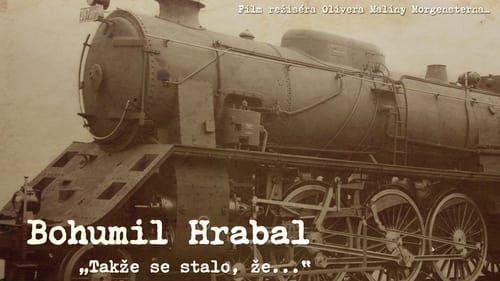
self

Writer
An elderly paper-crusher branded a fool in Prague secretly stashes condemned books, preserving their contents and extrapolating from them eccentric scenarios of wit.
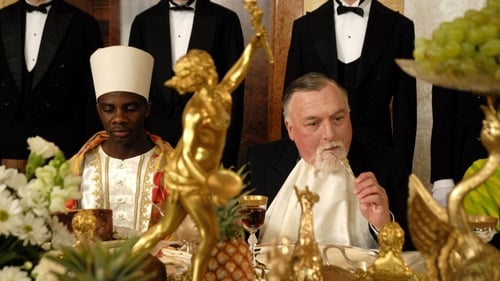
Novel
История взлета и падения карьеры одного пражского официанта в первой половине двадцатого века. Амбициозный молодой человек из официанта в гостинице маленького чешского приграничного городка попадает в огромный отель в центре Праги, и даже удостаивается награды от императора Абиссинии. Но настоящий взлет карьеры официанта случается после захвата Чехословакии немецкими войсками.

Writer
An elderly paper-crusher branded a fool in Prague secretly stashes condemned books, preserving their contents and extrapolating from them eccentric scenarios of wit.

Man with trolley
An elderly paper-crusher branded a fool in Prague secretly stashes condemned books, preserving their contents and extrapolating from them eccentric scenarios of wit.
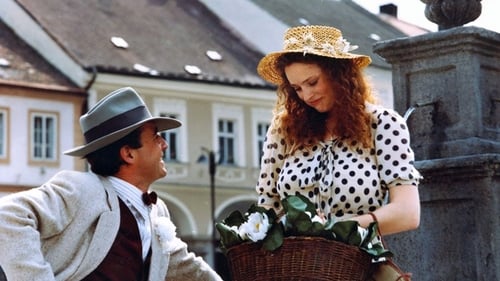
Writer
Charming, witty and smart men represent a fictitious insurance company who soon fall for an innocent-looking young woman smarter than she seems.

Prompted by a seminar given by acclaimed German filmmaker Peter Nestler, Prague, March '92 combines 16mm footage shot over the course of a week in the title city with excerpts from Bohumil Hrabal's essay "The Magic Flute," which considers the 20th anniversary demonstrations in Prague to commemorate the death of Jan Palach, who immolated himself in January 1969 to protest the Soviet invasion.

Writer
Speaking to a group of sunbathing women who remind him of lovers past, an elderly man unburdens himself of a lifetime’s worth of stories.

Writer
A commemorative and essayistic meditative piece on the Prague quarter Libeň during the 1950s.

Screenplay
Один из самых именитых чешских режиссеров снял заведомо непроходной фильм - крайне жесткую сатиру на тогдашний коммунистический режим. Фильм пролежал на полке 20 лет, вышел на экраны лишь в 1990 году и получил восторженные отзывы критиков. По роману Богумила Храбала. Прага начала 50-х. Действие фильма происходит в трудовом лагере. Разношерстная команда рабочих, среди которых и профессор литературы, и повар, и несколько женщин-заключенных, открывает в себе солидарность после того, как двое молодых людей влюбляются и решают пожениться. Они готовятся к свадьбе...

Short Story
Один из самых именитых чешских режиссеров снял заведомо непроходной фильм - крайне жесткую сатиру на тогдашний коммунистический режим. Фильм пролежал на полке 20 лет, вышел на экраны лишь в 1990 году и получил восторженные отзывы критиков. По роману Богумила Храбала. Прага начала 50-х. Действие фильма происходит в трудовом лагере. Разношерстная команда рабочих, среди которых и профессор литературы, и повар, и несколько женщин-заключенных, открывает в себе солидарность после того, как двое молодых людей влюбляются и решают пожениться. Они готовятся к свадьбе...

muž vynášející septik
This movie is based on texts of Bohumil Hrabal, world-known Czech prosaic. It's a story (in a form of a mosaic of short episodes and pictures) about the sadness and happiness of inhabitants of Kersko (Kersko is a small woody area full of cottages and roods). These people are both simple and sensitive, they have their own pleasures (e.g. Leli is a collector of cheap, but inutile things) and the greatest delight of all of them is a hunting. Crude poetics of amateur hunting is screened by dreamy pictures of this area. Menzel mixes sentimental lyricism and rough (but not vulgar!) humor and the outcome is the never-ending landscape of continuous life in the proximate nearness of nature. The performances of actors are brilliant. Both Rudolf Hrusinsky as a Franz and Jaromír Hanzlik as a Leli have nonrecurring charm bottomed on a pain and inebriation. Only the music is not perfect: Jiri Sust usually assembled his film music from his older works and in this movie there is many quotations.

Story
This movie is based on texts of Bohumil Hrabal, world-known Czech prosaic. It's a story (in a form of a mosaic of short episodes and pictures) about the sadness and happiness of inhabitants of Kersko (Kersko is a small woody area full of cottages and roods). These people are both simple and sensitive, they have their own pleasures (e.g. Leli is a collector of cheap, but inutile things) and the greatest delight of all of them is a hunting. Crude poetics of amateur hunting is screened by dreamy pictures of this area. Menzel mixes sentimental lyricism and rough (but not vulgar!) humor and the outcome is the never-ending landscape of continuous life in the proximate nearness of nature. The performances of actors are brilliant. Both Rudolf Hrusinsky as a Franz and Jaromír Hanzlik as a Leli have nonrecurring charm bottomed on a pain and inebriation. Only the music is not perfect: Jiri Sust usually assembled his film music from his older works and in this movie there is many quotations.
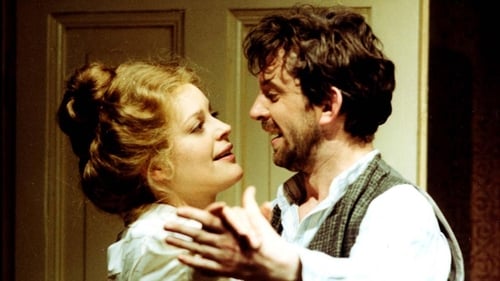
Writer
Francin, manager of a small-town brewery, has a charming wife whose abundant blonde locks are an adornment to the town. Maryska looks ethereal but loves meat and beer, while Francin is an ascetic. The strict members of the brewery board of directors come to audit the accounts, but are diverted from concentrating on Francin's detailed reports by Maryska, who has organized a pig-killing feast and is ably assisting the butcher. When she invites the old curmudgeons on the board to enjoy the fresh pork, they are too happy to agree. Francin doesn't know whether he is going to get a permanent contract. To make things worse his brother Pepin - eccentric, noisy and garrulous - turns up on an indefinite visit.

Screenplay
1944 год. Оккупированная фашистами Богемия. На маленькой железнодорожной станции начинает работать молодой паренек Милош Хрма. Новичок пытается во всем равняться на диспетчера Губичку, у которого и на работе все в порядке и на сердечном фронте: редкая дама не попадает в объятия Губички. Милош же влюблен в кондуктора Машу. Но пока разгораются любовные страсти, Восточный фронт становится все ближе и ближе. Партизаны дают о себе знать все чаще и чаще, и немецкое командование отдает приказ взять под особое наблюдение все поезда, идущие в сторону фронта…

Novel
1944 год. Оккупированная фашистами Богемия. На маленькой железнодорожной станции начинает работать молодой паренек Милош Хрма. Новичок пытается во всем равняться на диспетчера Губичку, у которого и на работе все в порядке и на сердечном фронте: редкая дама не попадает в объятия Губички. Милош же влюблен в кондуктора Машу. Но пока разгораются любовные страсти, Восточный фронт становится все ближе и ближе. Партизаны дают о себе знать все чаще и чаще, и немецкое командование отдает приказ взять под особое наблюдение все поезда, идущие в сторону фронта…
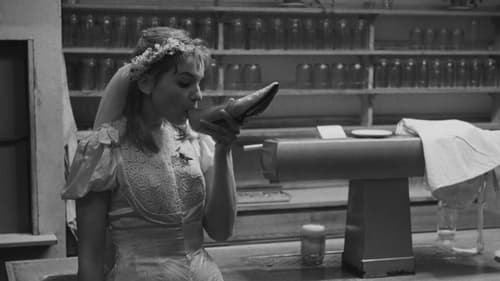
Sleeping Man in a Tram (segment "Romance")
Картина является сборником из 5 новелл, поставленных каждым из режиссеров по мотивам сюрреалистических произведений чешского писателя Богумила Грабала: «Смерть пана Балтазара», «Мошенники», «Дом радости», «Автоматический свет», «Романс».

Bohumil Hrabal (segment "Automat Svět")
Картина является сборником из 5 новелл, поставленных каждым из режиссеров по мотивам сюрреалистических произведений чешского писателя Богумила Грабала: «Смерть пана Балтазара», «Мошенники», «Дом радости», «Автоматический свет», «Романс».

Man by the House (segment "Podvodníci")
Картина является сборником из 5 новелл, поставленных каждым из режиссеров по мотивам сюрреалистических произведений чешского писателя Богумила Грабала: «Смерть пана Балтазара», «Мошенники», «Дом радости», «Автоматический свет», «Романс».

Spectator (segment "Smrt pana Baltazara")
Картина является сборником из 5 новелл, поставленных каждым из режиссеров по мотивам сюрреалистических произведений чешского писателя Богумила Грабала: «Смерть пана Балтазара», «Мошенники», «Дом радости», «Автоматический свет», «Романс».

Screenplay
Картина является сборником из 5 новелл, поставленных каждым из режиссеров по мотивам сюрреалистических произведений чешского писателя Богумила Грабала: «Смерть пана Балтазара», «Мошенники», «Дом радости», «Автоматический свет», «Романс».

Book
Картина является сборником из 5 новелл, поставленных каждым из режиссеров по мотивам сюрреалистических произведений чешского писателя Богумила Грабала: «Смерть пана Балтазара», «Мошенники», «Дом радости», «Автоматический свет», «Романс».
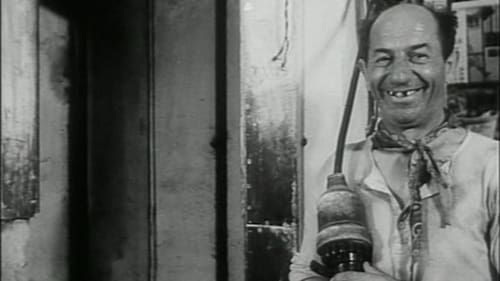
Short Story
Juraj Herz adapts Bohumil Hrabal's story about a man who works in a junk shop.

Screenplay
Juraj Herz adapts Bohumil Hrabal's story about a man who works in a junk shop.

Several parties—a prostitute, aging football players, working girls, two men playing pool, and a hedonistic young man—each coalesce in a tavern.

Screenplay
Several parties—a prostitute, aging football players, working girls, two men playing pool, and a hedonistic young man—each coalesce in a tavern.

Short Story
Several parties—a prostitute, aging football players, working girls, two men playing pool, and a hedonistic young man—each coalesce in a tavern.






















